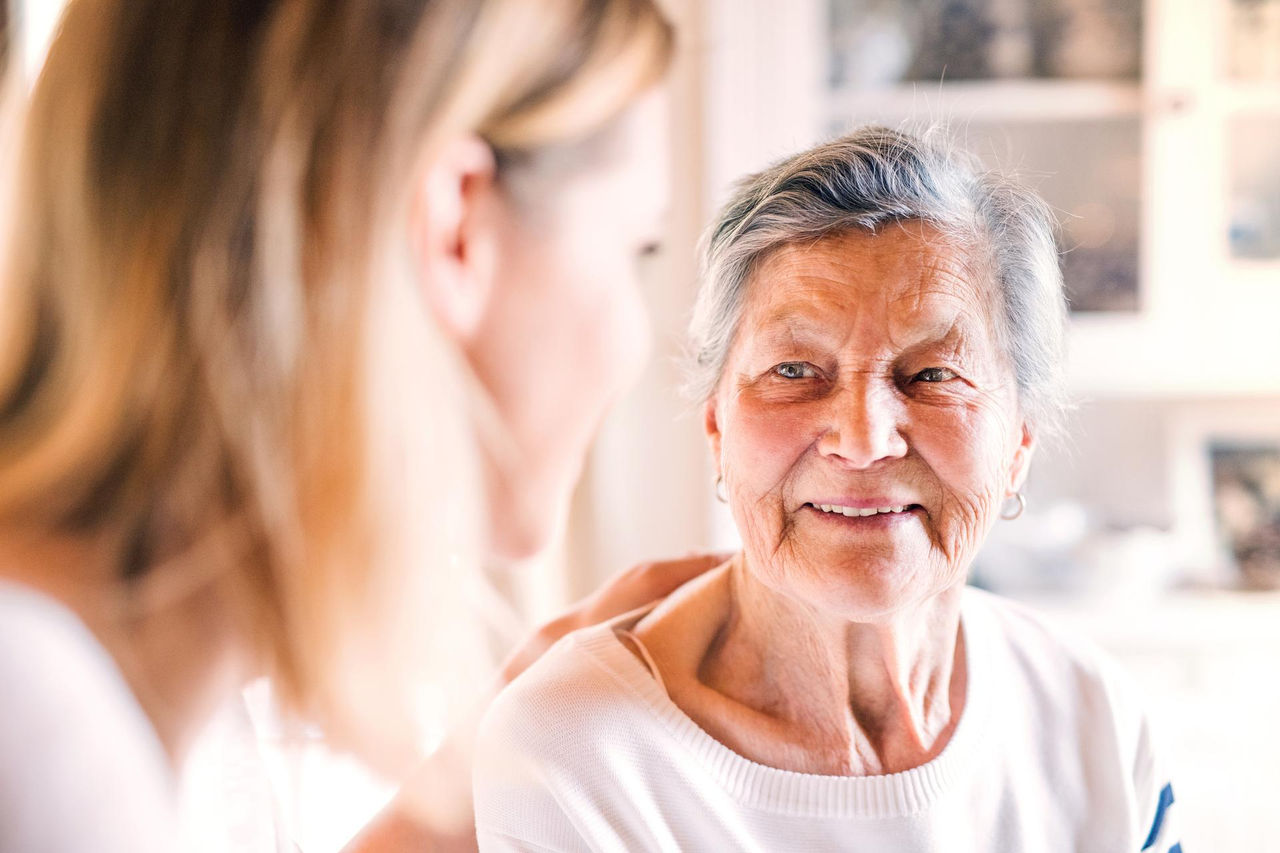- Home
- Conditions we treat
- Gastrointestinal cancer
- Pancreatic Cancer
Introduction

Pancreatic cancer
Learn more about pancreatic cancer, symptoms, diagnosis and potential treatment options.
What is pancreatic cancer?
What is pancreatic cancer?
Pancreatic cancer occurs when cells in the pancreas become abnormal and begin to grow uncontrollably.1 It can develop in any part of the pancreas, although most pancreatic tumours form in the head of the pancreas.1
There are two main types of pancreatic cancer:
Exocrine pancreatic cancers
These develop in the exocrine cells and are the most common type of pancreatic cancer.2
Most cases are adenocarcinomas, which usually start in the cells lining the pancreatic duct.3
Endocrine pancreatic cancers
Also known as pancreatic neuroendocrine tumours (Pan-NETs), these are less common.2
They develop in the endocrine cells, and are generally divided into functioning and non-functioning tumours.4
Exocrine pancreatic cancer symptoms may include:5
- Unintentional weight loss or reduced appetite
- Fatigue
- Jaundice, which may include yellowing of the eyes or skin, light-coloured stools, dark urine and/or itchy skin
- Areas of uneven fatty tissue under the skin
- Pain in the back or abdomen
- A feeling of fullness, heartburn or indigestion
- Enlargement of the gallbladder or liver
- Pale or greasy stools and changes in bowel habits (such as diarrhoea, constipation or the feeling of incomplete emptying)
- Changes in blood sugar levels, including in rare cases the development of diabetes
- Nausea and vomiting
- Blood clots, often in a large vein in the leg (deep vein thrombosis) or sometimes in the lung (pulmonary embolism)
Endocrine pancreatic cancers also cause a range of symptoms.4
Functioning tumours may lead to:5
- Reflux
- Increased urination
- High or low blood sugar levels
- Severe watery diarrhoea
- Blurry vision
- Increased thirst
Non-functioning tumours may cause:5
- Symptoms similar to exocrine pancreatic cancer
- Reduced liver function, jaundice, pain and/or reduced appetite
If you are concerned about any symptoms or have questions about pancreatic cancer, speak with your GP or specialist.
There are several known factors that may increase the likelihood of developing pancreatic cancer. These can include: 1
- A personal history of chronic pancreatitis
- Older age – many cases occur in people over 60
- Certain genetic factors
- Being male, as men have a slightly higher risk than women
- Smoking
- Being overweight or obese
- A family history of pancreatitis, pancreatic cancer, ovarian cancer or colon cancer
- Changes in blood sugar levels
- Excessive alcohol intake or liver problems
- Stomach infections, such as stomach ulcers
- Exposure to specific chemicals or heavy metals found in some pesticides, dyes and industrial materials
If you have concerns about any of these risk factors, speak with your GP or specialist.
Make an enquiry
Learn more about pancreatic cancer and the available treatment options.
Diagnosis
Diagnosing pancreatic cancer
If your GP is concerned about your symptoms or risk factors, they may refer you to a specialist. Several tests may be used to help diagnose pancreatic cancer.3 These may include:
- Blood, urine, and stool tests: used to check overall health, liver and kidney function, and levels of pancreatic hormones or tumour markers
- Imaging tests: these may include CT scans, MRI scans, ultrasound tests (such as an endoscopic ultrasound), cholangiopancreatography (X-ray or MRI imaging of the pancreatic and bile ducts), somatostatin receptor scintigraphy (often used for endocrine cancers), PET scans, and angiography
- Laparoscopy: a procedure that allows the doctor to examine the pancreas and nearby organs
- Biopsy: where a tissue sample is taken and examined under a microscope
If you are diagnosed with pancreatic cancer, your doctor will explain the details of your individual situation.

Find a doctor
Search for pancreatic cancer specialists in your state.
Treatments options
Treatment options for pancreatic cancer

Treatment options for pancreatic cancer usually depend on how advanced the cancer is, your age, overall health, and your personal preferences.1,3 Options may include:
- Chemotherapy
- Endoscopic treatment
- Radiation therapy
- Surgery
Treatment side effects
All cancer treatments can cause side effects, and the type and severity will vary between individuals.6-7 You should ask your doctor for detailed information about the possible side effects of any treatment recommended for you.
Find a centre
Search for consulting and treatment locations near you.
Support services
Support services
- Puckett, Y., & Garfield, K. (2022, September). Pancreatic cancer. StatPearls. Retrieved October 2023, from https://www.ncbi.nlm.nih.gov/books/NBK535345/
- Rawla, P., Sunkara, T., & Gaduputi, V. (2019, February). Epidemiology of pancreatic cancer: Global trends, etiology and risk factors. World Journal of Oncology, 10(1), 10–27. https://doi.org/10.14740/wjon1166
- Cancer Council Australia. (2024, May). What is pancreatic cancer? Retrieved December 2023, from https://www.cancer.org.au/cancer-information/types-of-cancer/pancreatic-cancer
- Bevere, M., Gkountakos, A., Martelli, F. M., Scarpa, A., Luchini, C., & Simbolo, M. (2023). An insight on functioning pancreatic neuroendocrine neoplasms. Biomedicines, 11(2), 303. https://doi.org/10.3390/biomedicines11020303
- Cancer Council Australia. (2023, October). What are the symptoms of pancreatic cancer? Retrieved December 2023, from https://www.cancer.org.au/cancer-information/types-of-cancer/pancreatic-cancer/symptoms
- National Cancer Institute, U.S. Department of Health and Human Services. (n.d.). Side effects of cancer treatment. Retrieved October 2023, from https://www.cancer.gov/about-cancer/treatment/side-effects
- Australian Government. Cancer Australia. (2025, February 7). Treatment side effects. Retrieved October 2023, from https://www.canceraustralia.gov.au/impacted-cancer/treatment/treatment-side-effects

You are leaving our website
You are now leaving our website. GenesisCare do not control this content and therefore are not responsible for its accuracy or reliability.
Disclaimer:
This website is provided for information purposes only. Nothing on this website is intended to be used as medical advice, or to diagnose, treat, cure or prevent any disease. It should not be used as a substitute for your own health professional's advice. Any medical procedure or treatment carries risks. Before proceeding with treatment, you should discuss the risks and benefits of the treatment with an appropriately qualified health practitioner. Individual treatment outcomes and experiences will vary.


